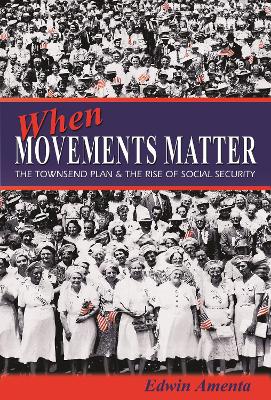Princeton Studies in American Politics: Historical, International, and Comparative Perspectives
2 total works
According to conventional wisdom, American social policy has always been exceptional - exceptionally stingy and backwards. But Edwin Amenta reminds the reader that 60 years ago the US led the world in social provision. He combines historical and political theory to account for this fact - and to explain why the country's leading role was short-lived. The orthodox view is that American social policy began in the 1930s as a two-track system of miserly "welfare" for the unemployed and generous "social security" for the elderly. However, Amenta shows that the New Deal was in fact a bold programme of relief, committed to providing jobs and income support for the unemployed. Social security was, by comparison, a policy afterthought. By the late 1930s, he shows, the US pledged more of its gross national product to relief programmes than did any other major industrial country. Amenta develops and uses an institutional politics theory to explain how social policy expansion was driven by northern Democrats, state-based reformers, and political outsiders. And he shows that retrenchment in the 1940s was led by politicians from areas where beneficiaries of relief were barred from voting.
He also considers why some programmes were nationalized, why some states had far-reaching "little New Deals", and why Britain adopted more generous social programmes.
He also considers why some programmes were nationalized, why some states had far-reaching "little New Deals", and why Britain adopted more generous social programmes.
When Movements Matter accounts for the origins of Social Security as we know it. The book tells the overlooked story of the Townsend Plan--a political organization that sought to alleviate poverty and end the Great Depression through a government-provided retirement stipend of $200 a month for every American over the age of sixty. Both the Townsend Plan, which organized two million older Americans into Townsend clubs, and the wider pension movement failed to win the generous and universal senior citizens' pensions their advocates demanded. But the movement provided the political impetus behind old-age policy in its formative years and pushed America down the track of creating an old-age welfare state. Drawing on a wealth of primary evidence, historical detail, and arresting images, Edwin Amenta traces the ups and downs of the Townsend Plan and its elderly leader Dr. Francis E. Townsend in the struggle to remake old age. In the process, Amenta advances a new theory of when social movements are influential. The book challenges the conventional wisdom that U.S. old-age policy was a result mainly of the Depression or farsighted bureaucrats.
It also debunks the current view that America immediately embraced Social Security when it was adopted in 1935. And it sheds new light on how social movements that fail to achieve their primary goals can still influence social policy and the way people relate to politics.
It also debunks the current view that America immediately embraced Social Security when it was adopted in 1935. And it sheds new light on how social movements that fail to achieve their primary goals can still influence social policy and the way people relate to politics.

